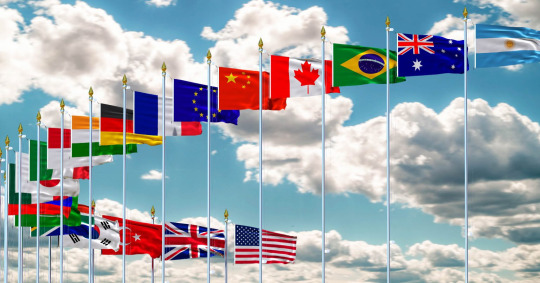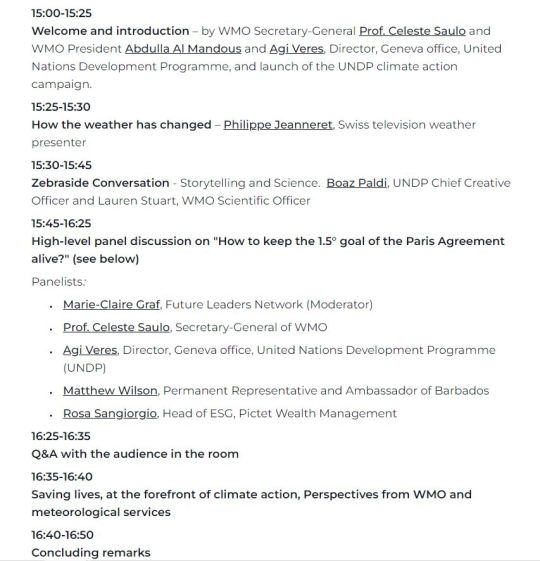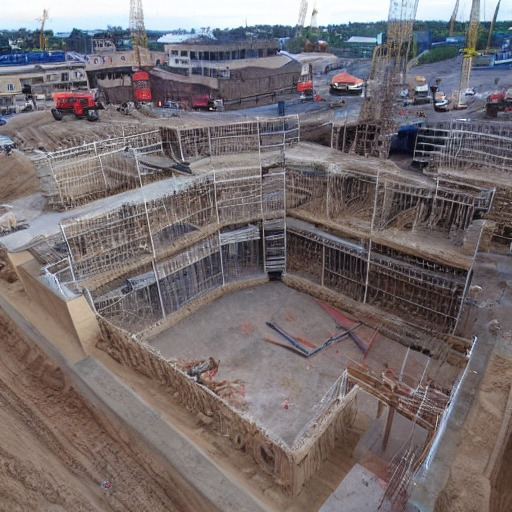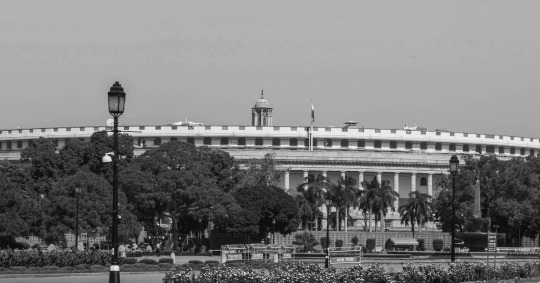#policymakers
Text
Normalize updating laws and regulations that are no longer fit for purpose.
Normalize working with powerful enemies to find a solution where everybody wins.
Normalize mutual compromise.
Normalize collaboration over opposition.
Normalize civil discourse on divisive issues.
Normalize good faith and the principle of charity.
Normalize discussion of specific social, political, and economic issues.
Normalize advocacy for specific and implementable policy reforms to to tackle said issues.
Normalize imperfect solutions.
Normalize civic engagement.
Normalize public sector action.
Normalize incremental success.
Normalize improving society instead of destroying and rebuilding it from the ground up.
NORMALIZE PROGRESS!!!
#solarpunk#hopepunk#politics#political discourse#public policy#civic engagement#civic duty#georgism#transit#urban planning#accessibility#disability justice#disabled#healthy politics#policymakers#social justice#societal improvement#retain hope#societal progress#climate change#climate action#advocacy#trains#political activist#political action#activism#hanlon's razor#good regulations work#good faith arguments#good faith
224 notes
·
View notes
Text

Yes..."science fiction".
119 notes
·
View notes
Text

My demands on policy makers - seriously now:
Abolition of all climate-damaging subsidies such as on kerosene!
More speed with the mobility turnaround!
Prohibition of the privatization of basic necessities of life like water!
Lowering of the voting age to 16 years with solid political basic information!
Access to good education for all, throughout life!
Regulation against fake news, hate speech - and the misuse of AI!
A supply chain law for all imported products and services!
No more patronage politics!
Generational justice!
Women in power!
#thoughts#aperçu#politics#not funny#not fun at all#demands#policymakers#climate change#subsidies#mobility#turnaround#privatization#voting age#education#fake news#hate speech#ai#artificial intelligence#supply chain#patronage#generations#justice#women in power
2 notes
·
View notes
Text

Changing World Order: (Im) balance of Power in Eurasia.
The disintegration of the USSR and the end of the Cold War proved to be a global paradigm shift in the sense that various developments following these two pivotal events changed the course of global affairs. It paved the way for a US led ‘unipolar’ world order. Commentators like Fukuyama declared ‘the end of history’ and the triumph of the ‘liberal global order’. Another important shift was from traditional ‘inter-state’ conflicts to ‘intra-state’ conflicts. Except for military campaigns by Russia, the US, and Israel primarily in the Middle East, Caucasus, and Balkan, we have not seen any full-scale inter-state conflicts. Rather they were replaced by ‘intra-state’ civil wars and unrest existing in various corners of the globe.
However, after the 9/11 attacks, the US hegemony has been challenged by various states and other non-state actors. Trump’s presidency was a decisive period in global politics it became evident that the US was struggling to maintain its stature and position in world politics. The Middle East and Eastern Europe were traditionally Western Spheres of influence. Obama’s ‘Asia Pivot’ in the ‘Indo-Pacific’ created a power vacuum in the Middle East and Eastern Europe leaving space for Russian and Chinese aggression. This became one of the contributing factors in the annexation of Crimea in 2014 and the ongoing war between Russia and Ukraine. The US lost its influence in the Middle East which was discernible in the case of Syria and Afghanistan. The successive isolationist policies of the Trump administration emboldened China to exercise its power in multilateral organizations.
Furthermore, the regional politics of the Middle East changed significantly in terms of power dynamics. Until 2020, only two Arab countries-Egypt (1978-79) and Jordan (1994) normalized their relations with Israel. In 2020, Israel managed to normalize its relations with four more Arab countries- the UAE, Morocco, Sudan, and Bahrain. The US recognized Jerusalem as the capital of Israel in 2017 by relocating its embassy there. Isolation of Iran in regional politics is an outcome of these developments.
The US has been trying to champion the Indo-Pacific region; partly because Hillary Clinton propagated ‘Asia-Pacific’ as the driver of global politics, partly because of the China Trap as G. T. Allison would put it. The geo-political competition in the Indo-Pacific region commenced with the introduction of the strategic rebalancing policy of the US towards Asia – namely the ‘Pivot to Asia Policy’ by the US and the inauguration of the strategically ambitious ‘geo – economic’ infrastructural project of Belt and Road Initiative by China. China’s ‘reclamation’ of contested territories in the South China Sea and intrusion in the Indian Ocean along with other developments compelled the US and its allies to rejuvenate QUAD (The Quadrilateral Security Dialogue).The Indo-Pacific Theater brought together reluctant partners of the US closer. The US started taking part actively in the partnership, preparedness, and promotion of a networked Indo-Pacific region. The middle powers such as India, Japan, and Australia have been working in the direction of creating a middle power coalition. Recently, the ambitious Indo-Pacific Economic Framework (IPEF) was launched on May 23, 2022, by President Joe Biden with fourteen participating members. However, except for Japan, most of the countries did not show as much willingness as the US envisioned.
China, on the other hand, is working hard to win credibility from the Indo-Pacific countries through lucrative financial investments under the BRI and Maritime Silk Road Initiative (MSRI) frameworks. Due to China’s heavy investments, the countries of South Asia, Southeast Asia, and to some extent, the Middle East have become battlegrounds for asserting hegemony for China and the US. Many of these destination countries, despite pressure, do not want to take any side or limit themselves to a block but want to harness the opportunities by avoiding any possible conflict of interest. Japan, despite having a huge trade dependency on China, continues embracing the US. Australia is repelled by China on a range of issues from Taiwan to the Southwest Pacific. Russia is getting closer to China, especially since the Ukraine invasion. As pointed out by the Chinese foreign minister, they both have “strong resilience and strategic determination.” As of now, China has not termed the ongoing Russian-Ukraine conflict as an ‘invasion’ and even initiated a diplomatic outreach campaign to advance its interests in the Indo-Pacific by supporting Russia’s cause if not directly.
India has adopted an unconventional approach by taking considerable bold posturing in its foreign policy stance; focusing on its ties with the US when it comes to the Indo-Pacific region. This has undoubtedly caused a deterioration of India’s bilateral relations with China. Since the Galwan clash, both countries have not made any significant progress in resolving border disputes. After the G219 highway, China is now constructing another highway called G695 national expressway through Akshai Chin connecting Tibet with Xinjiang. The new highway route passes even closer to the Line of Actual Control (LAC) compared to the past one. Despite these developments, relative progress has taken place through the BRICS National Security Advisors (NSA) talks where both the countries seem to cooperate on issues such as counter-terrorism. Overall, Eurasia is again the center of geopolitical competition. With the decline of the US hegemony and a rising China, regional stability is being challenged, leaving less scope for co-operation and increasing conflict.
0 notes
Text
Tackling the climate crisis- World Meteorological Day 2024 Ceremony.

The ceremony embraces all the key players involved in tackling the climate crisis: the UN family. National meteorological and hydrological services, youth and civil society, policymakers and the private sector.
15:00-15:25 - Welcome and introduction – by WMO Secretary-General Prof. Celeste Saulo and WMO President Abdulla Al Mandous and Agi Veres, Director, Geneva office, United Nations Development Programme, and launch of the UNDP climate action campaign.
15:25-15:30 - How the weather has changed – Philippe Jeanneret, Swiss television weather presenter
15:30-15:45 - Zebraside Conversation - Storytelling and Science. Boaz Paldi, UNDP Chief Creative Officer and Lauren Stuart, WMO Scientific Officer
15:45-16:25 - High-level panel discussion on "How to keep the 1.5° goal of the Paris Agreement alive?" (see below)
Panelists: Marie-Claire Graf, Future Leaders Network (Moderator)
Prof. Celeste Saulo, Secretary-General of WMO
Agi Veres, Director, Geneva office, United Nations Development Programme (UNDP)
Matthew Wilson, Permanent Representative and Ambassador of Barbados
Rosa Sangiorgio, Head of ESG, Pictet Wealth Management
16:25-16:35 - Q&A with the audience in the room
16:35-16:40 - Saving lives, at the forefront of climate action, Perspectives from WMO and meteorological services
16:40-16:50 - Concluding remarks
Watch the webcast! and Get the dates of the WMO Upcoming conferences, seminars and workshops!UNDP’s newest climate action campaign
We can’t tell you what it is yet but we assure you the storyline will drive you to take action. Join us to celebrate the 2024 World Meteorological Day as we launch UNDP’s newest climate action campaign!
Tune in on March 21, 2024 at 10:00 EDT - 14:00 UTC - 15:00 CET for a live broadcast launch from Geneva, Switzerland to find out!

Join us for the World Meteorological Day 2024 celebration to spotlight climate action.
#meteorological and hydrological services#youth and civil society#policymakers#private sector#weather forecasting#climate action#sdg13#wmo#world meterorological organization
0 notes
Text
Recognize that eradicating racial discrimination requires sustained effort and collaboration across diverse sectors.

Through dialogue and education, we can dismantle the harmful stereotypes and misconceptions that fuel bigotry and hatred. By fostering inclusivity and empathy, we can create environments where all individuals feel valued, respected, and empowered. As advocates for social change, Unifor is committed to promoting diversity, equity, and inclusion in all facets of society.
We recognize that eradicating racial discrimination requires sustained effort and collaboration across diverse sectors. By forging partnerships with community organizations, advocacy groups, and policymakers, we can effect meaningful change and build a more just and equitable society for all. We encourage members to participate in events in their communities and seek out opportunities to advance their understanding of racism and its impacts.
Together, we stand in solidarity with all workers and communities in the pursuit of a world free from racial discrimination.
#bigotry and hatred#stereotypes and misconceptions#inclusivity and empathy#community organizations#advocacy groups#policymakers#international day for the elimination of racial discrimination
0 notes
Text
5th plenary meeting - Commission on the Status of Women, Sixty-eighth session (CSW68) General discussion (continued).
The sixty-eighth session of the Commission on the Status of Women will take place from 11 to 22 March 2024 under the theme "Accelerating the achievement of gender equality and the empowerment of all women and girls by addressing poverty and strengthening institutions and financing with a gender perspective". Review theme: Social protection systems, access to public services and sustainable infrastructure for gender equality and the empowerment of women and girls.
Watch the 5th plenary meeting - Commission on the Status of Women, Sixty-eighth session (CSW68) General discussion (continued)

0 notes
Text
Driving Towards Unemployment: How Increased License Suspensions Could Stall the Economy
Good evening, everyone. This is Jordan The Producer with Independent Journalism and Media (iJam) bringing you the latest news. Today, we are discussing a concerning trend that could have widespread effects on employment and the economy.
Construction zone: Credit iJam Media Group, LLC
Recent data has shown a significant increase in license suspensions across the country. Whether it be due to…

View On WordPress
#consumer costs#contributing to economy#current events#delivery services#economic impact#iJam#independent journalism#Jordan The Producer#license suspensions#media coverage#news updates#policymakers#public policy#public safety#safeguarding rights#stay informed#supply chain disruptions#transportation industry#workforce issues
0 notes
Quote
Governments and policymakers should make sure that the needs of children are built into decision making. Adult decision makers at all levels, from parents to politicians, must listen to their perspectives and take them into account when designing policies that will disproportionately affect future generations. Children will face today’s environmental problems for the longest time; but they are also the least able to influence the course of events.
‘Over-consumption in the world’s richest countries is destroying children’s environments globally, new report says’, UNICEF
2 notes
·
View notes
Text

The Exigency for an Active Parliament for Building a Vibrant Democracy.
On May 13, 2022, the Indian Parliament completed 70 years since its first session. The first session of Lok Sabha and Rajya Sabha commenced on May 13, 1952. The Lok Sabha is currently in its 17th (2019- 2024) session. The Parliament is the supreme law-making institution in India, where a draft bill is presented as a legislative proposal, when passed by both houses of parliament and assented to by the country’s president, becomes an Act of Parliament and the law of the land.
The statistics recently released by the PRS Legislative Research throw insight into how parliamentary standards have declined over the years, which calls for a severe relook into how our Parliament has been functioning. The Parliament has been in session for fewer days than earlier, from an average of 121 days from 1952-70 to 68 days since 2000, and this trend continues even now. Even in a few parliamentary sessions, participation in the parliamentary debates is low. In July 2019, a debate on malnutrition among women and children lasted 1 hour with only 10 participants. Just before the first wave of Covid-19, the debate around the threat of the outbreak lasted for 40 minutes with only 19 participants, which is indicative of the decline in participation of parliamentarians. The lack of participation by the members in the debates and fewer sessions of Parliament is a grave concern. Moreover, the 17th Lok Sabha’s monsoon session passed nearly 20 bills without any debate, of which 11 bills were passed in 8 minutes without any debate and discussion. The hasty passage of bills without discussion violates Article 107, which says that no Bill shall be deemed to have been passed unless both houses agree. The makers of the constitution could have used the term ‘passed.’ Still, they used the term ‘agreed’ with the intention of not passing the bills, namely by voting but wanted both Houses of Parliament to discuss legislative proposals thoroughly before agreeing to them.
Another unfortunate development that is being observed is regarding the setting up of parliamentary committees, which are supposed to be in operation even when parliament is not in session. Why are parliamentary committees important? Due to the complexity and wide range of issues that Parliament debates upon, it is necessary to have the technical expertise to comprehend the issues being raised. So the bills are sent to committees to ensure proper scrutiny before passing them, which has immensely contributed to the strengthening of the laws. Since 2004, only 45% of bills have been referred to Parliamentary Committees. Only 20% and 10% of the bills in the 16th and 17th Lok Sabha have been sent to Parliamentary Standing Committees. There have been 134 bills introduced in three years by the Lok Sabha., 114 of which have been passed. Only 13% of bills have been sent to parliamentary committees. In the United Kingdom, all bills are sent to committees for examination and scrutiny. The Central and State Legislative Assemblies have diminished in stature with the introduction of the ‘Anti-Defection Law’ in 1985, which was intended to prevent lawmakers from leaving one party for another, it also introduced the party whip system. It has transformed the legislative institutions into halls of whip-driven tyranny, where it prevents lawmakers from exercising their freedom of speech and conscience.
In a nutshell, it is incumbent on the parliament to function for a longer duration of time to accommodate a wide range of debates on matters of public importance and national challenges. The active presence and debate of parliamentarians are essential for constructive debates and discussions in the parliament which is an essential obligation of Parliamentarians towards citizens. There is a necessity for relaxation of some provisions in the ‘Anti-Defection Law’ agreeing that an MP or an MLA can be disqualified for violating the party whip on confidence motions, no-confidence motions, adjournment motions, money bills, or financial problems. The legislative domain needs to be free quorum so that a lawmaker should not be compelled to follow the party whip and be able to vote against a legislative proposal if they disagree with their party’s official stance. In a participatory democracy, a citizen’s responsibility shouldn’t end simply with the act of voting, which is right now the case. There needs to be greater public participation in the lawmaking process from citizens themselves. It is not the government’s sole responsibility to create an enabling environment for debates, discussions, consultations, and parliamentary scrutinies. It is the responsibility of citizens too to take an interest in matters of public importance, but the general perception among citizens is that of an MP or an MLA as a middle man to the executive in getting access to the public goods for one’s constituency. Citizens are interested in using the influence of MPs and MLAs for recommendations for personal benefits. So, to improve the law-making process, citizens need to hold legislatures and the government accountable by increasing people’s participation and making legislatures not only functional but also prosper to lead our ways to good governance.
0 notes
Text
Navigating Indo-Pacific Geopolitics: Wisdom For Future Policymakers
Session ReportRahul Soni
IMPRI Impact and Policy Research Institute‘s Center for International Relations and Strategic Studies, IMPRI Impact and Policy Research Institute, New Delhi, conducted online training course on Diplomacy and Foreign Policy. Day 4 of the session covered the theme Geopolitics of Indo-pacific. The session was led by Ambassador Shashank, (IFS, Retd.), Former Foreign…

View On WordPress
0 notes